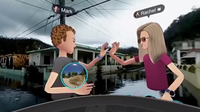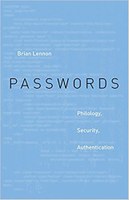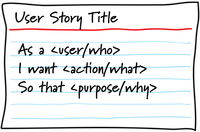if (englMajor && IST): Inside and Outside the Black Box

The companies of Silicon Valley are not always successful at communicating their innovations to the rest of the world. Take Facebook, for example, which last October live-streamed a floating avatar of Mark Zuckerberg high-fiving a  Facebook executive in virtual reality: with hurricane-devastated Puerto Rico as the backdrop. Originally intended to showcase Facebook’s contributions to the Puerto Rico relief efforts, the tone-deaf event, which was ostensibly a demonstration of Facebook’s new social virtual reality platform, did little to assuage the public’s concerns over Facebook’s disregard for social good.
Facebook executive in virtual reality: with hurricane-devastated Puerto Rico as the backdrop. Originally intended to showcase Facebook’s contributions to the Puerto Rico relief efforts, the tone-deaf event, which was ostensibly a demonstration of Facebook’s new social virtual reality platform, did little to assuage the public’s concerns over Facebook’s disregard for social good.
However, the tech sector is not oblivious to the importance of good communication skills. In fact, it seems to reward those who have both soft skills (attributes such as self-awareness, critical thinking, and empathy) and technical competencies. According to a research project by Google that synthesized data related to hiring, firing and promotion, the traits that were most indicative of a top Google employee were interpersonal skills, such as possessing insight into others and being a good coach, not technical competence.[1] Although I doubt Google will suddenly start staffing their development teams full of English majors as a product of these results, I do think that they highlight 1) the ebb and flow of disciplinary lines, and 2) the incorrectness of viewing the humanities and STEM as disparate fields.
As an English and Information Sciences & Technology double-major myself, I always find it immensely rewarding to talk with other individuals in the Penn State community who share my interest in this intersection. When I spoke about the relationship between English and technology with Brian Lennon, Associate Professor of English and Director of the Digital Culture and Media Initiative, he was quick to point to the long genealogy of English academics who have contributed to the ways that both the public and technologists think about technology. Most notably, Marshall  McLuhan, a professor of English literature at the University of Toronto, coined the term global village in the 1960s, which has since served as a metaphor for understanding the growing interconnectedness of the world. Professor Lennon’s research also revolves around the various points of contact between technology and the literary. Referencing his most recent book, Passwords: Philology, Security, and Authentication, which elaborates on the collision between cryptology and philology in the form of the password, Professor Lennon explained that “technical people point to anecdotes in literary history” to explain their work. Security experts, for instance, may look to the Book of Judges and the use of the word “shibboleth” by the Gileadites as a way to elucidate public key cryptography.
McLuhan, a professor of English literature at the University of Toronto, coined the term global village in the 1960s, which has since served as a metaphor for understanding the growing interconnectedness of the world. Professor Lennon’s research also revolves around the various points of contact between technology and the literary. Referencing his most recent book, Passwords: Philology, Security, and Authentication, which elaborates on the collision between cryptology and philology in the form of the password, Professor Lennon explained that “technical people point to anecdotes in literary history” to explain their work. Security experts, for instance, may look to the Book of Judges and the use of the word “shibboleth” by the Gileadites as a way to elucidate public key cryptography.
Relatedly, through my classes and internships at startups in Ireland and Australia, I have discovered that software  development also incorporates narratives as a practical tool. Known as “user stories,” these short, informal narratives are intended to help development teams better empathize with the end-user and come up with a set of requirements and features for the application that best suit the intended audience. By no means are these narratives intended to match Hemingway’s “six-word” stories in literary quality, but they nonetheless demonstrate the power of stories in helping individuals understand one another.
development also incorporates narratives as a practical tool. Known as “user stories,” these short, informal narratives are intended to help development teams better empathize with the end-user and come up with a set of requirements and features for the application that best suit the intended audience. By no means are these narratives intended to match Hemingway’s “six-word” stories in literary quality, but they nonetheless demonstrate the power of stories in helping individuals understand one another.
Narratives and good communication skills are necessary not just for facilitating the flow of information and ideas between the tech sector and the “real” world. In fact, effective technical communication may be even more vital within the organizations that develop the technology we use in our daily lives. Sarah Deibert, who earned her B.A. in English in 2008 from Penn State and worked as an information developer at IBM for 8 years, notes that “a technical person needs to explain what their product does to potential clients, project managers, and other stakeholders.” Without the ability to communicate technical information in a way that is comprehendible to individuals outside the development team, there is a chance the final product could suffer from a lack of funding, poor marketing or sales, and a myriad of other non-technical factors that influence a project’s success. Furthermore, Deibert enumerates a more ordinary scenario: “What if a technical person leaves to take another job? There needs to be enough documentation left behind for the new hire.”
Even though becoming an English major is not the only way to develop strong soft skills, Deibert claims that her English classes reinforced for her the concept of being “detail oriented,” which allowed her to spot inconsistencies and ensure that written products, such as marketing materials, “sound like they’ve been written by one voice.”
Considering all the public scrutiny around Cambridge Analytica, the activity of Russian bots on social media, the recent string of Uber scandals, and the internal employee petition challenging Google’s drone AI project, it seems that we, as a society, may be at the cusp of realizing the importance of understanding the implications of the Silicon Valley “black box.” The magic that generates our daily newsfeed or suggests new music for our ears is the very same opaque force that raises our blood pressure during binges of Black Mirror. For Matt Tierney, Assistant Professor of English, the humanities “teach us the language” that allows us to take the emotions and thoughts generated by these experiences, and critically examine them. Why do we expect technology to solve this problem? What are the unintended consequences of this platform? Is innovation an absolute good?
I do not have any answers to these questions yet, but I do know that the only way to engage effectively with these issues is with an interdisciplinary lens. Thankfully, my undergraduate experience as an English-IST double major has set me on the path to develop the critical consciousness and technical competencies necessary in order to respond fruitfully to such queries in my own work and beyond.
Philip Chwistek is the 2017-2018 CALS Undergraduate Intern.
Special thanks to Brian Lennon, Sarah Deibert, and Matthew Tierney for sharing their time and experiences and making this article possible.
[1] Strauss, Valerie. "The Surprising Thing Google Learned about Its Employees - and What It Means for Today's Students." The Washington Post. December 20, 2017. Accessed May 02, 2018.

The companies of Silicon Valley are not always successful at communicating their innovations to the rest of the world. Take Facebook, for example, which last October live-streamed a floating avatar of Mark Zuckerberg high-fiving a  Facebook executive in virtual reality: with hurricane-devastated Puerto Rico as the backdrop. Originally intended to showcase Facebook’s contributions to the Puerto Rico relief efforts, the tone-deaf event, which was ostensibly a demonstration of Facebook’s new social virtual reality platform, did little to assuage the public’s concerns over Facebook’s disregard for social good.
Facebook executive in virtual reality: with hurricane-devastated Puerto Rico as the backdrop. Originally intended to showcase Facebook’s contributions to the Puerto Rico relief efforts, the tone-deaf event, which was ostensibly a demonstration of Facebook’s new social virtual reality platform, did little to assuage the public’s concerns over Facebook’s disregard for social good.
However, the tech sector is not oblivious to the importance of good communication skills. In fact, it seems to reward those who have both soft skills (attributes such as self-awareness, critical thinking, and empathy) and technical competencies. According to a research project by Google that synthesized data related to hiring, firing and promotion, the traits that were most indicative of a top Google employee were interpersonal skills, such as possessing insight into others and being a good coach, not technical competence.[1] Although I doubt Google will suddenly start staffing their development teams full of English majors as a product of these results, I do think that they highlight 1) the ebb and flow of disciplinary lines, and 2) the incorrectness of viewing the humanities and STEM as disparate fields.
As an English and Information Sciences & Technology double-major myself, I always find it immensely rewarding to talk with other individuals in the Penn State community who share my interest in this intersection. When I spoke about the relationship between English and technology with Brian Lennon, Associate Professor of English and Director of the Digital Culture and Media Initiative, he was quick to point to the long genealogy of English academics who have contributed to the ways that both the public and technologists think about technology. Most notably, Marshall  McLuhan, a professor of English literature at the University of Toronto, coined the term global village in the 1960s, which has since served as a metaphor for understanding the growing interconnectedness of the world. Professor Lennon’s research also revolves around the various points of contact between technology and the literary. Referencing his most recent book, Passwords: Philology, Security, and Authentication, which elaborates on the collision between cryptology and philology in the form of the password, Professor Lennon explained that “technical people point to anecdotes in literary history” to explain their work. Security experts, for instance, may look to the Book of Judges and the use of the word “shibboleth” by the Gileadites as a way to elucidate public key cryptography.
McLuhan, a professor of English literature at the University of Toronto, coined the term global village in the 1960s, which has since served as a metaphor for understanding the growing interconnectedness of the world. Professor Lennon’s research also revolves around the various points of contact between technology and the literary. Referencing his most recent book, Passwords: Philology, Security, and Authentication, which elaborates on the collision between cryptology and philology in the form of the password, Professor Lennon explained that “technical people point to anecdotes in literary history” to explain their work. Security experts, for instance, may look to the Book of Judges and the use of the word “shibboleth” by the Gileadites as a way to elucidate public key cryptography.
Relatedly, through my classes and internships at startups in Ireland and Australia, I have discovered that software  development also incorporates narratives as a practical tool. Known as “user stories,” these short, informal narratives are intended to help development teams better empathize with the end-user and come up with a set of requirements and features for the application that best suit the intended audience. By no means are these narratives intended to match Hemingway’s “six-word” stories in literary quality, but they nonetheless demonstrate the power of stories in helping individuals understand one another.
development also incorporates narratives as a practical tool. Known as “user stories,” these short, informal narratives are intended to help development teams better empathize with the end-user and come up with a set of requirements and features for the application that best suit the intended audience. By no means are these narratives intended to match Hemingway’s “six-word” stories in literary quality, but they nonetheless demonstrate the power of stories in helping individuals understand one another.
Narratives and good communication skills are necessary not just for facilitating the flow of information and ideas between the tech sector and the “real” world. In fact, effective technical communication may be even more vital within the organizations that develop the technology we use in our daily lives. Sarah Deibert, who earned her B.A. in English in 2008 from Penn State and worked as an information developer at IBM for 8 years, notes that “a technical person needs to explain what their product does to potential clients, project managers, and other stakeholders.” Without the ability to communicate technical information in a way that is comprehendible to individuals outside the development team, there is a chance the final product could suffer from a lack of funding, poor marketing or sales, and a myriad of other non-technical factors that influence a project’s success. Furthermore, Deibert enumerates a more ordinary scenario: “What if a technical person leaves to take another job? There needs to be enough documentation left behind for the new hire.”
Even though becoming an English major is not the only way to develop strong soft skills, Deibert claims that her English classes reinforced for her the concept of being “detail oriented,” which allowed her to spot inconsistencies and ensure that written products, such as marketing materials, “sound like they’ve been written by one voice.”
Considering all the public scrutiny around Cambridge Analytica, the activity of Russian bots on social media, the recent string of Uber scandals, and the internal employee petition challenging Google’s drone AI project, it seems that we, as a society, may be at the cusp of realizing the importance of understanding the implications of the Silicon Valley “black box.” The magic that generates our daily newsfeed or suggests new music for our ears is the very same opaque force that raises our blood pressure during binges of Black Mirror. For Matt Tierney, Assistant Professor of English, the humanities “teach us the language” that allows us to take the emotions and thoughts generated by these experiences, and critically examine them. Why do we expect technology to solve this problem? What are the unintended consequences of this platform? Is innovation an absolute good?
I do not have any answers to these questions yet, but I do know that the only way to engage effectively with these issues is with an interdisciplinary lens. Thankfully, my undergraduate experience as an English-IST double major has set me on the path to develop the critical consciousness and technical competencies necessary in order to respond fruitfully to such queries in my own work and beyond.
Philip Chwistek is the 2017-2018 CALS Undergraduate Intern.
Special thanks to Brian Lennon, Sarah Deibert, and Matthew Tierney for sharing their time and experiences and making this article possible.
[1] Strauss, Valerie. "The Surprising Thing Google Learned about Its Employees - and What It Means for Today's Students." The Washington Post. December 20, 2017. Accessed May 02, 2018.